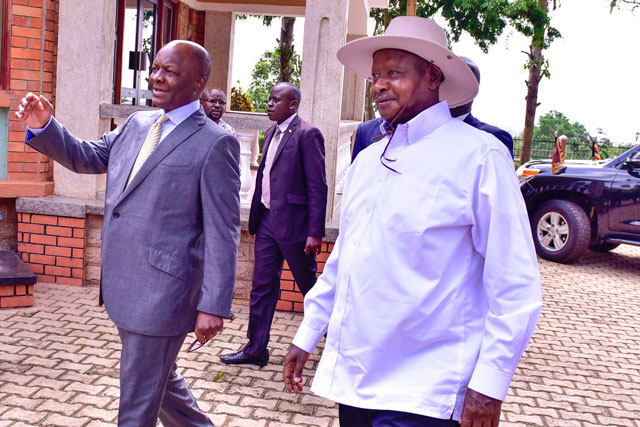
There is a peaceful way forward to a permanent solution between Buganda and the government after elections
COMMENT | ABBEY KIBIRIGE SEMUWEMBA | Thanks to President Yoweri Museveni’s speech after being declared the winner of the 2021 elections, Uganda’s post presidential election is fast turning into a debate on Buganda and all it stands for.
But, while tribalism and religion have certainly played a part in why some people in Central Uganda voted for Museveni’s nearest challenger in the election, Robert Kyagulanyi aka Bobi Wine and his party; the National Unity Platform, explanations like these tend to understate the degree to which people want change — Museveni has been around too long.
There is a mood of growing uncertainty about the future of Uganda that will no doubt continue at least until Museveni makes some political moves. Both donors and NRM are anxious to see how things are going to pan out in the next few years.
What is clear is that Museveni is probably serving his last term as president of Uganda. He has consolidated power and, as such, for any transition to a new face, it’s going to need his input. People simply need to see a new face at the helm of things, and I believe it will reduce the current tension in the country.
In this period, the emphasis is being put on controlling the leaders of opposition such that there’s no violence in the country after elections. It partly explains why the regime is illegally detaining Kyagulanyi at his house, and continues surveillance on him, Kiiza Besigye and other opposition leaders.
It might help to ask a more basic question: what, exactly, is Museveni afraid of? Losing power, presumably. So, let’s help him see things differently such that we maintain peace in our country. After all, he is now an old man —you can’t argue against gravity however much you love power.
NRM still dominant party
A lot of opposition supporters are excited about the MP numbers in their respective parties but the fact is that political parties are of conspicuously small consequence in the current scheme of things. NRM is still the dominant party with over 300 MPs, which means they can still pass anything in parliament without any help from the opposition. Political parties had fallen out of favour; interest in them is now reviving, and this is progress.
Furthermore, we shouldn’t let political parties regress back to gaining support along ethnic and religious terms, as it was in the early 1960s.
A move to the “Left” by the late former president of Uganda, Apollo Milton Obote, which in part aimed at cutting the Baganda down to size and in part to establish a developmental socialism like what was evolving in Kwame Nkrumah’s Ghana, resulted in the overthrow of the Kabaka.
This was followed by the establishment of a one party authoritarian regime, which paved the way to years of civil war and anarchy, leaving little prospect for a peaceful evolution of democratic politics. Obote’s attempt to establish a UPC-based movement/party-state along Ghanaian lines not only failed, it intensified the ethnic, religious, and other cleavages in Uganda. The result of these and similar policies was virtual total economic disruption, which drove ethnic and sectarian opposition underground.
Kyagulanyi’s supporters!
Kyagulanyi’s supporters should stop insulting those who don’t support him. Debates with them are rarely coolheaded. Anyone who tries even casually to disagree with him may be stymied.
Their best chance of winning any argument is to engage public’s emotions; for emotion is the enemy of rational argument. And as emotions go, one of them—fear—is the more potent than the rest.
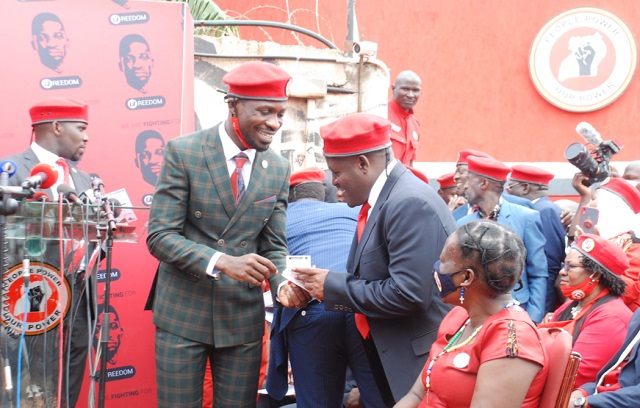
Moving forward, I think there should be a permanent solution between Buganda and the central government. The government should set up an Odoki-like commission to collect views of Ugandans on matters of governance.
The process should, in and of itself, be a deliberate effort to get people to look forward rather than back and to build a common constitutional language. The 1994 Odoki Commission made it clear from the beginning that the information so gathered was to be the foundation for future deliberations over appropriate institutional instruments.
Federalism factor
Granting federalism to areas that agitate for it should be a conciliatory enough step between Buganda and the central government. Buganda remains in essence what it was in 1962- a mini-state.
The coming of Kyagulanyi in politics has definitely rekindled Buganda’s political nationalism. With the capital city Kampala being in Buganda, Museveni should tread careful in the way he handles his differences with the region. Otherwise, he risks plunging the country into anarchy. He shouldn’t treat Buganda like the way he treated Kasese after the 2016 elections.
Museveni shouldn’t attempt to isolate the Kabaka as a way of punishing the Baganda for not voting for NRM. The colonialists tried it and failed.
The most critical event was the attempt by a liberal colonial governor to get rid of the Kabaka rather than dismantle the special position of Buganda as provided for in the Uganda Agreement of 1900. The effort backfired. Most people didn’t vote for Kyagulanyi, the person, or his party; they were protesting against something.
Land grabbing
Buganda nationalism can be accommodated through federalism.
Uganda has a diverse landscape, diverse ethnicity, culture, diverse opinions on everything, diverse means of employment, etc. and federalism is the best way to keep everyone represented. There’s a lot of rural poverty in different parts of the country.
There’s a lot of land grabbing in Buganda and Busoga, and I believe such issues could be addressed through federal states.
In short, without an effective working relationship between the central and local government, with effective cadres at all levels, a struggle between countervailing pulls of power will ensue, especially given the likely dynamics described above.
Museveni needs to calm down and engage leaders and people of all levels, including the opposition.
****
Abbey Kibirige Semuwemba is a Ugandan human rights activist and blogger based in England.
 The Independent Uganda: You get the Truth we Pay the Price
The Independent Uganda: You get the Truth we Pay the Price
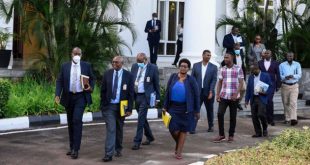
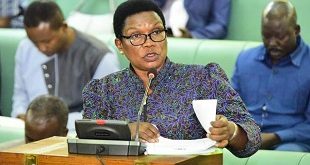
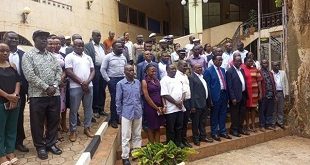
“People simply need to see a new face at the helm of things, and I believe it will reduce the current tension in the country.”
What tension? Perhaps in Buganda.
“The coming of Kyagulanyi in politics has definitely rekindled Buganda’s political nationalism'” Better to call it ethnic nationalism rather than political nationalism, or even ethnic chauvinism.
“With the capital city Kampala being in Buganda, Museveni should tread careful in the way he handles his differences with the region.” Kampala is the capital of Uganda. All Ugandans used to pay taxes which the British colonial administration used to build Kampala. All ethnic groups contribute to the economy of Kampala.